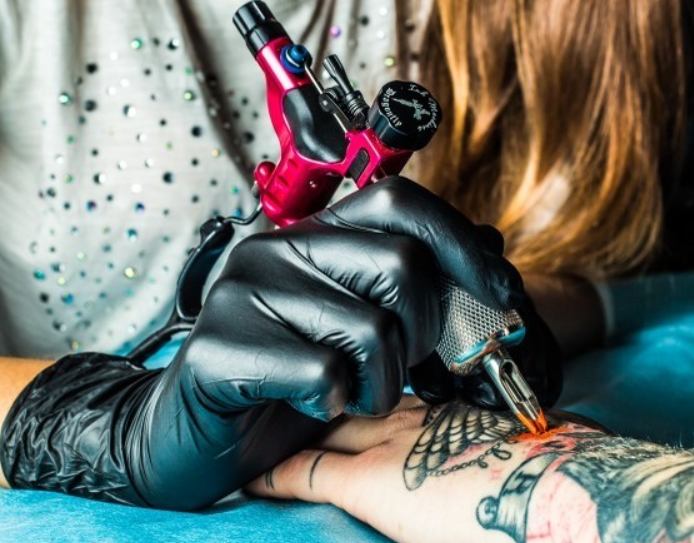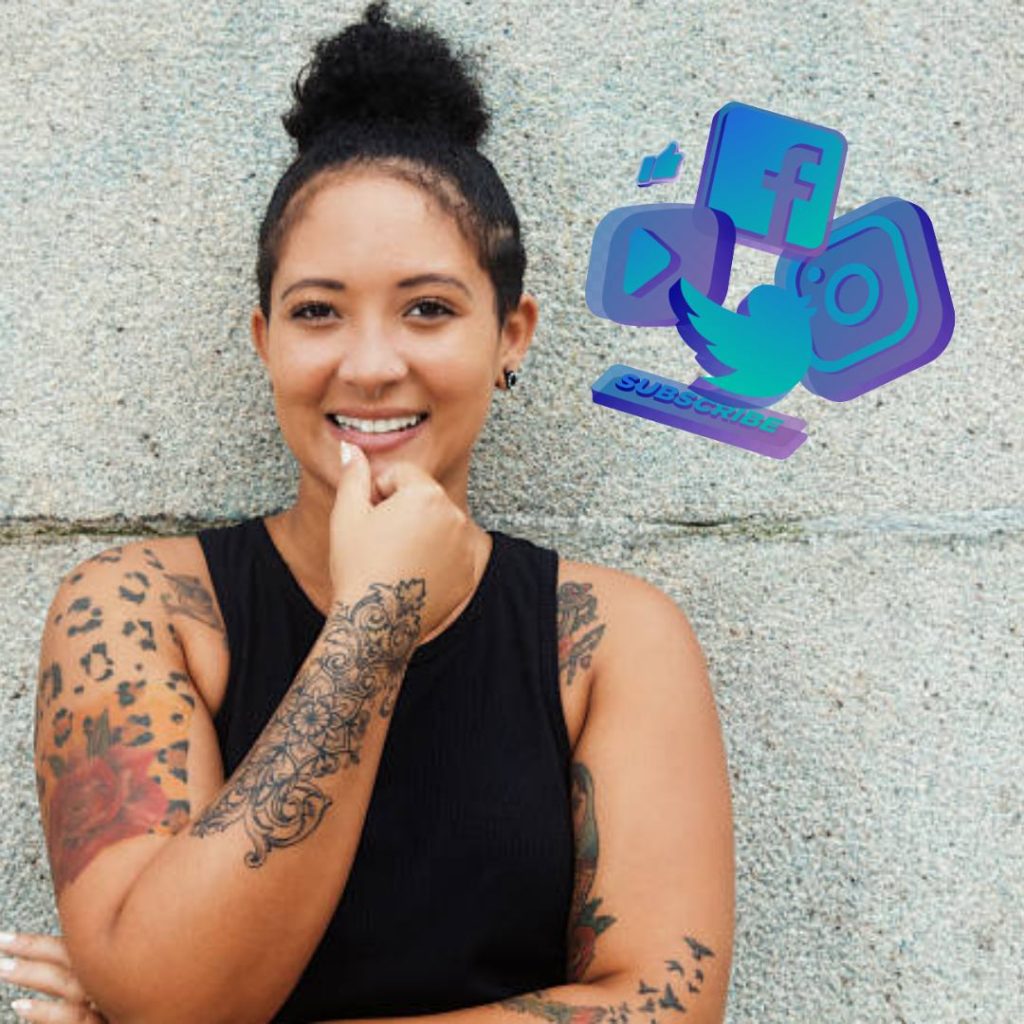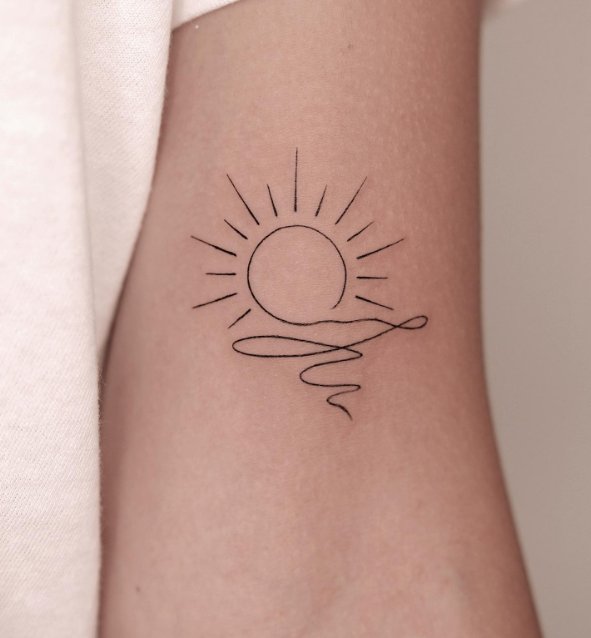A tattoo artist is a professional who creates body art by permanently inking symbols, patterns, and text onto clients’ bodies. Insert specialized needles into their skin, and ink is embedded during this process. Although every tattoo artist has their unique procedure, most begin by drawing the desired image on paper, making a pattern if necessary, and then applying the pattern to the skin. Tattoo artists exhibit a great level of artistic talent, inventiveness, and accuracy.
If you’re a highly creative person who loves art and design, enjoys working with people, and wants to produce meaningful work that will last a lifetime, becoming a tattoo artist might be the career for you. It takes years of arduous work and devotion to your trade to become a tattoo artist, but it can result in a lucrative career. We go through what a tattoo artist is, what they do, and the steps you can take to launch your career as a tattoo artist in this post.
Advantages and Disadvantages of Becoming a Tattoo Artist
Advantage
- No degree is necessary.
- May earn $60k annually on average.
- Decide what your art and style will be.
Disadvantage
- To work as a tattoo artist, most states require that you maintain a license.
- You will need to make an upfront investment in your knowledge and tools.
- Requires ongoing trend-related education.
Now here are some key steps to be followed if you want to become a professional tattoo artist.
Practice Drawing
To succeed as a tattoo artist, you don’t need to study art. A lot of fine art courses won’t instruct you on how to create illustrations that move naturally with the body. However, a significant component of learning to tattoo is honing your drawing abilities and studying tattoo design. Examining the creations of renowned tattoo artists whose work you appreciate is the finest approach to learning how to draw tattoo designs. You can develop your artistic abilities and get ready to establish your tattoo style later in your career by attempting to recreate the tattoo designs they came up with.
Tattoo Artist Training
Although an apprenticeship can provide you with priceless experience, tattoo school may be a better starting point. Initially, to become a licensed tattoo artist, several health organizations and states demand academic training. A course is also a secure environment for developing your tattoo talents, your art, and your connections with other tattoo artists.
If you lack expertise or don’t have an artistic background, attending tattoo school is extremely beneficial because it provides a secure environment in which to make mistakes. Keep in mind that when starting, mistakes are normal. The only way to develop into a great tattoo artist is to practice regularly. Yet to become a better tattoo artist, you must overcome your concerns and learn from your failures.
Make a Portfolio
When beginning your career as a tattoo artist, building a portfolio is essential because it enables potential mentors and employers to swiftly evaluate your work and determine whether they are interested in your specific art style. Your portfolio should be polished and appealing, and it should include your best illustrations and tattoo ideas. For displaying their work, many tattoo artists use binders with sheet protectors. Add art that demonstrates your artistic flexibility and includes both dark and colorful works.
Locate a Mentor (Optional)
One method to get practical experience using the skills you’ve gained in a work environment is to find a mentor. Finding a mentor who works at a respected tattoo parlor, has years of experience, and whose tattooing style you like is important. You might ask local tattoo parlors or certain artists you want to work with whether they would be willing to mentor you by bringing your portfolio to them.
Get a Guaranteed Tattoo Apprenticeship
In the tattoo industry, experience is incomparable. To perfect your abilities and your craft, you must work with a mentor in a genuine store. An apprenticeship in tattooing is essential to becoming a good tattoo artist since nothing can replace the experience of working in a real shop with customers and other tattoo artists. Some tattoo apprenticeships are erratic, unstable, and solely meant to employ you as free labor for administrative and shop cleaning tasks that someone else would otherwise be paid to perform. Be cautious. Make a change if you find yourself in one of these situations.
Get a Tattoo from a Qualified Tattooist
Tattooing is a difficult procedure that requires exceptional precision. Seeing a tattoo artist in action is a terrific method to obtain inspiration for your work.
Make sure the tattoo is on your arm or thigh if you intend to learn, as this will put you in a position to see what is happening.
Get a License
Tattoo artists need a state license before they may work. 50 distinct states make up the United States. Examine the legislation of your state here. This can involve paying a fee and taking a written test, depending on the state. To practice as a tattoo artist, you must have a license.
Purchase Tattoo Supplies
The majority of tattoo parlors demand that their staff members buy their tattoo equipment, including tattoo machines, needles, ink sets, tubes, and skin pens. Also, you’ll probably need to buy your hygiene supplies including gloves, alcohol wipes, antiseptic solutions, bandages, and cling wrap. It is good to keep these expenses in mind as you begin your job.
Tattoo Practice on Dummy Skin
It’s time to practice your tattooing on fake flesh now that you’ve observed a tattoo artist in action. Aspiring painters can practice their techniques without worrying about damaging real people’s flesh by using fake skin, which is typically composed of silicone. You should practice the three key tattooing techniques of line, shading, and packing.
Promote and Publicize Your Services
After receiving your license, you can start advertising and selling your services. Social networking is one of the finest places to promote yourself as a tattoo artist. To post designs and finished projects and discover potential clients, create an Instagram or TikTok account.
Practice
To improve your design and tattooing abilities, consistent practice is essential. For more exact work on shading, developing clean lines, and consistency, some individuals advise practicing on fruit-like oranges, while others advise working on synthetic skin.
Although all practice helps hone your skills, nothing beats tattooing people. The greatest method to gather experience could be to utilize your friends or family as a canvas if they’re open to it. When they first start, tattoo artists frequently provide free or greatly reduced tattoos to acquire practice tattooing on people.
How to Become a Tattoo Apprentice?
Being persistent and demonstrating your sincere desire are the two key things you need to concentrate on if you want to become a tattoo apprentice. Ask if they are currently seeking an apprentice and if there is a particular shop or tattoo artist that you truly respect. Get ready! Bring all the artwork you can manage. start spending time at the store. Get inked by someone there! Get to know everyone and become friends with them which will be good. expressing interest in cleaning or making grocery errands for them.
Strong sketching abilities are required, as well as the willingness to create art that you may not particularly enjoy with the belief that, with enough practice, you will eventually be able to create anything you like. This line of work is difficult and not for everyone. The social facets of being an artist must also be considered. You’ll spend a lot of time with them and have conversations with all kinds of folks. You’re going to want to win their favor, so they’ll return! I could go on and on, but I believe that’s an excellent place to start.
How to get a Tattoo License Without an Apprenticeship?
These are the steps you need to follow to get a license without an apprenticeship,
-
Be a Natural Artist by Yourself
When someone says, “tattoo artist,” some people focus on the word “tattoo” rather than the phrase “artist.” It is a wonderful job, but you must not just have artistic talent naturally; you must also practice, learn, and develop that talent into something unique. Nowadays, everyone wants to be a tattoo artist, thus there is a lot of competition. Remember that no tattoo artist is interested in teaching you how to draw. You can only learn to get tattoos from them. So, the goal of your portfolio is to persuade them that you possess the artistic talent necessary for success.
-
Build a Good Portfolio
Never enter a business with a portfolio of your completed tattoos. You’ll probably regret doing this for several reasons. You may have injured or irreparably damaged the individuals you tattooed before taking a photo of it. This demonstrates a disregard for both the client and the work of art. Any tattoo artist who accepts you as an apprentice will need to invest time in teaching you how to tattoo properly and helping you break your “scratcher” tendencies. They are therefore warned that you would be particularly challenging to mentor by the amateur work in your portfolio.
You shouldn’t be tattooing unless you have received training from a qualified expert.
-
Attend Schools
More and more state-licensed tattoo schools have opened as the tattoo industry expands, giving students more opportunities to get their licenses. If you think about how barbering used to be, for example, you can see how the procedure changed with time. Although they are not the only option, tattoo apprenticeships are still the best way to become a certified artist. Although most apprenticeships are not unpleasant, they all require time; the typical one lasts roughly two years, and you do not influence when you begin or end your path to becoming a tattoo artist.
-
Get your License.
There are varying standards for each state and country, but you must complete a predetermined number of hours in tattoo school, complete a few health and safety courses, and pass a test on sanitary tattooing procedures. Spend some time learning about the conditions you must meet to work where you want to.
Next, when the appropriate time arrives, complete all the paperwork, pass the exams, and present all the evidence needed to obtain a license. Also, obtaining a tattoo will require you to be certified; otherwise, you run the risk of ruining your reputation and possibly breaking the law. After receiving your certification, you can begin tattooing and charging clients! Congratulations then! You succeeded.
How to Become a Tattoo Artist Without Apprenticeships
Apprenticeships are not frequently used to enter the tattoo industry. No path is simple, but you will make the effort if you think this is the right one for you. You can become a tattoo artist after finishing a course on the subject. But if you want to start a career as a tattoo artist, an apprenticeship is a great option. You will acquire practical skills and a recognized qualification. You and your business must register with your local government before you begin operating as a tattoo artist. To obtain a tattoo, cutting, or bleaching permit, this is required. A tattoo license that will enable you to work in the profession full-time can be obtained through an apprenticeship.
Tattoo practice on dummy skin?
Fake skin is an excellent option for tattoo beginners because it can be used for practice and simulation of tattoo work. Fake hands are a great tool for skilled tattoo artists who create new designs. Or it could be a decoration or an exhibition to show off the skill and craftsmanship in a tattoo parlor. It is good so that you could not harm anybody at the very beginning of your tattooing career.
Here are some of the dummy skin products which you can buy for your betterment.
Silicone Fake Skin Dummy Fake Tattoo Skin for Tattoo Artists
A Pound of Flesh Practice Tattoo Hand Silicone Tattooing Fake Skin
Double Sides Fake Tattoo Skin
What degree is best for tattooing?
There are several sites where you can learn tattooing but surely it is at a very basic level. You can find several courses on the internet, and you can also learn from YouTube, but all of these will give you knowledge about tattooing. It will not help you that much until you come to play the game on the field. I will suggest you find a good course at Udemy which is good. You will find your desired courses here.

FAQs
- How long does it take to become a tattoo artist?
To become a tattoo artist, one to three years of training under an experienced tattooist is required. You will then need to work hard and look for alternative employment in order to support yourself throughout that time. Apprenticeships in tattooing are unpaid internships that are required. Yet everything will be beneficial in the end.
- How to get a licensed tattoo artist?
From any authorized shop you can find a licensed tattoo artist in your state. It is good to read that artist’s portfolio. You can call or text their number and ask for their portfolio. Surely, they won’t regret providing you with that if they are legal.
- What should be the best tattoo for a beginner artist?
Small tattoos are also a common first option. Because of their delicate design and hardly perceptible size, fine-line techniques are perfect for a first tattoo, whether it be of hearts, stars, or astrological symbols. A statement or mantra that best describes who you are is a memorable option for a first tattoo.
- Is online good for learning tattoos?
The greatest way to learn without an apprenticeship is to engage with online tattoo artists. If you know where to search, you may get the information you need to become a licensed tattoo artist on YouTube, blogs, forums, and other websites.
- What problems may an artist face if he/she is not legalized?
In states that either mandate or permit tattoo artist apprenticeships, the apprentice may only work under the direction or supervision of a qualified tattoo artist. For instance, as a tattoo apprentice, you are not permitted to perform tattoos unless a certified tattooist is there to oversee you.
Each state has a different set of potential punishments for anyone found guilty of tattooing without a license. While some states do not, others do provide monetary fines as well as the possibility of imprisonment or prison time. In the great majority of states, disobeying license regulations for tattoo artists is a minor offense, while criminal penalties are occasionally possible.
Social acceptability nowadays has contributed to the tattooing industry’s sluggish but steady expansion. The sky is the limit for people who want their bodies to be a canvas, from the skill behind today’s top tattoo artists to the ink and the tools that make their artwork possible. These are the common steps that you need to follow if you want to become a tattoo artist. Try to follow these properly. It will be an advice meet and take more advice from a professional face to face which will be more beneficial for you as you can get ideas about more kinds of stuff from them.

My name is James Dalton specialize in developing research-based content on the fashion & lifestyle industry. And has good experience in tattooing. Tattooing is my hobby and worked for some years as a tattoo artist.








